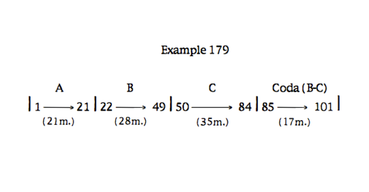Neptune

The lonely, remote sounds of Neptune, with its bi-tonality centered on oscillating chords if e minor and g-sharp minor, sometimes played together, clearly indicate why Holst thought this was not a happy ending. Neptune signifies the moments when the mortal self seems to fall away and one is face to face with the eternal spirit. We are on our own. It is the mystic gaze. The nebulous stage, which all must pass through… but in good aspect to mental rulers it produces love of mysticism… and religious movements having an abstract or mystical basis. It is especially noteworthy that Holst’s movement, Neptune the mystic has the same title as Leo’s chapter on this planet. This is new territory, and Holst produces striking sounds that were much commented upon at its first public performance in 1920. We are left with a mystery. It is the natural ending of the cycle that began with Mars.
 General Analysis and Outline of Neptune
General Analysis and Outline of Neptune
NEPTUNE, the mystic. This movement is, if any music can be, the disembodied spirit of sound. Themes are practically non-existent; in their place are fragments of melody and harmony, all manipulated at the very lowest dynamic level and in the most attenuated orchestral sonorities. Almost imperceptibly a double chorus of women's voices enters on a high G, sustained through a dozen bars. The singing continues, without words, embedded in a diaphanous veil of orchestral sound. Even this dies away, and the voices are left alone to intone a cadence over and over again with ever diminishing tone , until it is consumed in silence.
